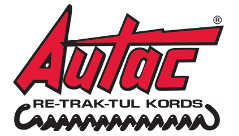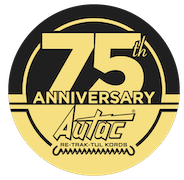Custom Coil Cables: Versatile, Durable, and Efficient
1. Benefits of Custom Coil Cables
Custom coil cables offer numerous advantages over traditional straight cables. Their unique design and material composition make them ideal for dynamic applications requiring frequent movement. Some of the main benefits include:
a. Space Efficiency
Coil cables are compact and retractable, making them ideal for environments where space is limited. Their coiled structure allows them to extend when needed and contract when not in use, preventing clutter.
b. Enhanced Durability
Due to their ability to stretch and retract without excessive strain, coil cables experience less wear and tear compared to standard cables. This durability extends their lifespan, reducing maintenance and replacement costs.
c. Flexibility and Mobility
The spiral shape of coil cables allows them to move freely, making them perfect for applications requiring frequent motion. This is particularly useful in automotive, medical, and industrial settings.
d. Resistance to Tangling and Damage
Unlike traditional cables, coil cables resist tangling and kinking, ensuring a longer lifespan and improved reliability in demanding applications.
e. Aesthetic and Organizational Benefits
Coil cables contribute to a clean and organized workspace, reducing the mess caused by loose or excessive wiring.
2. Types of Custom Coil Cables
Coil cables come in various types, each designed for specific applications. Understanding these variations helps in choosing the right cable for a particular use case.
a. Power Coil Cables
These cables are designed for power transmission and are commonly used in industrial machinery, automotive applications, and home appliances. They ensure a consistent power supply while accommodating movement.
b. Data and Signal Coil Cables
Used in telecommunications, medical devices, and computer peripherals, data coil cables transmit signals with minimal interference. Shielding and high-quality conductors ensure clear and uninterrupted communication.
c. Audio and Communication Coil Cables
These cables are commonly used in headsets, microphones, and audio equipment. They help maintain a clean signal path while providing flexibility for user movement.
d. Industrial-Grade Coil Cables
Designed for harsh environments, industrial-grade coil cables feature extra insulation and rugged materials to withstand extreme temperatures, chemicals, and mechanical stress.
e. Medical-Grade Coil Cables
Medical applications require coil cables with high precision and hygiene standards. These cables are designed to resist contamination and are often made from medical-grade materials.
3. Applications of Custom Coil Cables
Custom coil cables serve a variety of industries, ensuring optimal performance in different environments. Below are some of the key applications:
a. Medical Equipment
Coil cables are extensively used in medical devices, such as defibrillators, monitoring systems, and imaging equipment. Their flexibility and reliability ensure smooth operation in healthcare settings.
b. Automotive Industry
Used in car charging systems, diagnostic tools, and steering wheel controls, coil cables in the automotive industry provide enhanced flexibility and durability in dynamic environments.
c. Consumer Electronics
Many consumer products, such as phone chargers, headsets, and retractable USB cables, use coil cables to offer convenience and space efficiency.
d. Industrial and Manufacturing Applications
In factories and manufacturing plants, coil cables are used in robotic arms, conveyor systems, and automation equipment. Their ability to withstand harsh conditions makes them ideal for industrial use.
e. Aviation and Defense
Custom coil cables are used in aircraft communication systems, cockpit controls, and military-grade equipment. Their durability and flexibility make them suitable for demanding environments.
4. Factors to Consider When Choosing Custom Coil Cables
Selecting the right custom coil cable requires consideration of several key factors:
a. Material Selection
Choosing the right insulation and conductor material ensures optimal performance. Common materials include:
- PVC: Cost-effective and flexible, suitable for general applications.
- Polyurethane (PU): Highly durable and resistant to abrasion, commonly used in industrial and automotive applications.
- TPE (Thermoplastic Elastomer): Offers high flexibility and excellent resistance to chemicals and environmental factors.
b. Cable Length and Coil Expansion
The length and expansion capacity of the coil cable should match the intended application. Overstretching a cable beyond its designed limits can reduce its lifespan.
c. Shielding and Interference Resistance
For data transmission applications, shielding is crucial to prevent signal interference and maintain performance.
d. Environmental Resistance
Consider factors such as temperature fluctuations, exposure to chemicals, and moisture resistance, depending on where the cable will be used.
e. Compliance with Industry Standards
Ensure the coil cable meets industry-specific certifications and standards, such as UL (Underwriters Laboratories) or RoHS (Restriction of Hazardous Substances), to guarantee safety and performance.
5. Importance of High-Quality Coil Cables
Investing in high-quality custom coil cables provides numerous advantages, including:
a. Reliability and Performance
High-quality materials and precise manufacturing processes ensure that coil cables deliver consistent performance without signal loss or mechanical failure.
b. Longevity and Cost Savings
Premium coil cables last longer, reducing the frequency of replacements and minimizing maintenance costs over time.
c. Safety and Compliance
Using certified and tested coil cables prevents electrical hazards, short circuits, and malfunctions, ensuring safe operation in critical applications.
d. Customization Options
Top manufacturers offer customization options, including different colors, materials, connector types, and coil lengths, to meet specific project requirements.
Conclusion
Custom coil cables are essential for various industries, offering flexibility, durability, and efficiency. Their space-saving design, resistance to wear and tear, and ability to handle movement make them an excellent choice for applications ranging from medical equipment to industrial automation. When selecting coiled power cable, it is crucial to consider material quality, environmental factors, and compliance with industry standards to ensure optimal performance and longevity. Investing in high-quality custom coil cables ensures safety, reliability, and cost-effectiveness, making them a valuable asset in any application.



Recent Comments